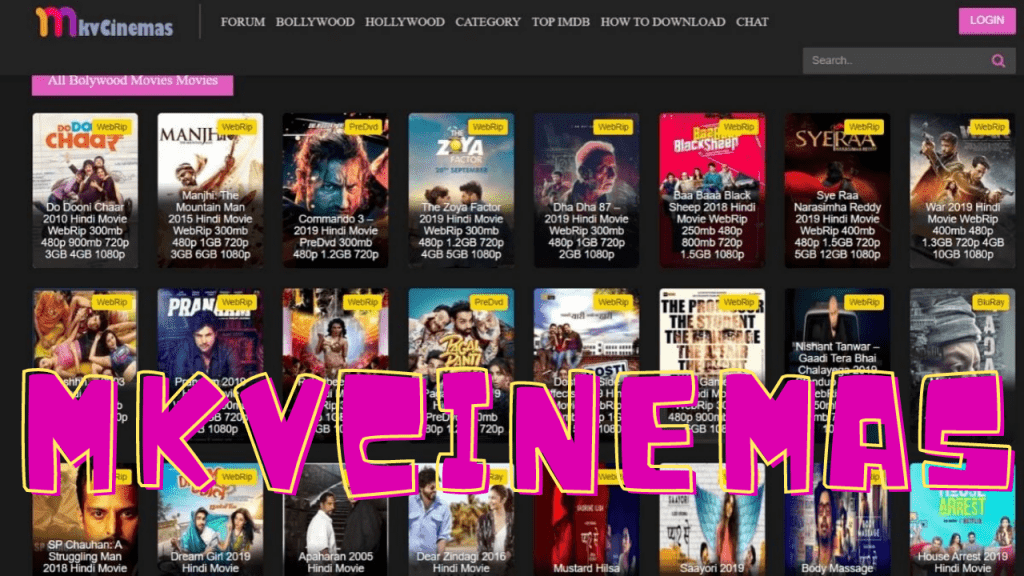MKV Cinema: The Ultimate Guide To Understanding And Enjoying MKV Files
MKV cinema has become a popular topic among movie enthusiasts and digital media consumers. As technology evolves, so does the way we consume films, making it essential to understand the formats that facilitate this experience. This article aims to provide a comprehensive guide on MKV cinema, covering everything from what MKV files are to how they can enhance your viewing experience.
With the rise of high-definition content, the MKV format stands out for its ability to store multiple tracks of audio, video, subtitles, and metadata in a single file. This flexibility allows users to enjoy a more immersive cinematic experience, whether they're watching on a home theater system or a portable device. In this guide, we delve into the specifics of MKV files, their advantages, and how to play them across various platforms.
In the following sections, we will explore the technical aspects of MKV cinema, its applications, and provide detailed instructions on how to manage and enjoy MKV files. By the end of this article, you will have a thorough understanding of MKV cinema and its benefits for both casual viewers and cinephiles.
Table of Contents
- What is MKV?
- Advantages of MKV Files
- How to Play MKV Files
- Best MKV Players
- Converting MKV Files to Other Formats
- Troubleshooting MKV Playback Issues
- The Future of MKV Cinema
- Conclusion
What is MKV?
MKV, or Matroska Video, is an open-source multimedia container format that allows for the integration of various streams of video, audio, subtitles, and metadata into a single file. It was developed to provide a flexible and efficient way to store high-quality video content.
Key Features of MKV
- Supports multiple audio and subtitle tracks.
- Stores metadata, including cover art and chapter information.
- Compatible with a wide range of codecs.
- Open-source and free to use.
MKV is widely used for high-definition online video content, making it a preferred choice for both filmmakers and viewers. Its capability to handle large files without compromising quality is one of the reasons it has gained popularity in the realm of digital cinema.
Advantages of MKV Files
Choosing MKV files over other formats provides several distinct advantages:
- High Quality: MKV files can store high-definition video without significant compression loss.
- Flexibility: Users can choose their preferred audio and subtitle tracks, enhancing the viewing experience.
- Rich Metadata: MKV files can include a wealth of metadata, allowing for improved organization and searchability.
- Wide Compatibility: Most modern media players and devices support MKV files, making them accessible across platforms.
How to Play MKV Files
Playing MKV files is generally straightforward, but it may require specific software or hardware capabilities. Here are some methods to play MKV files:
Using Media Players
Most users can play MKV files using dedicated media players. Some popular options include:
- VLC Media Player
- PotPlayer
- KMPlayer
Streaming Devices
Many streaming devices, such as Roku and Amazon Fire TV, support MKV playback. However, users should verify compatibility before streaming.
Best MKV Players
Here are some of the best MKV players available today:
- VLC Media Player: A free, open-source media player that supports almost all video formats.
- PotPlayer: A highly customizable video player known for its performance and extensive format support.
- Media Player Classic: A lightweight media player that provides a simple interface for playing various formats.
Converting MKV Files to Other Formats
While MKV files are versatile, there may be situations where converting them to another format is necessary. Here are some popular tools for converting MKV files:
- HandBrake
- Freemake Video Converter
- Any Video Converter
Troubleshooting MKV Playback Issues
If you encounter playback issues with MKV files, consider the following troubleshooting tips:
- Ensure your media player is up to date.
- Check if the MKV file is corrupted or incomplete.
- Try a different media player to rule out compatibility issues.
The Future of MKV Cinema
The future of MKV cinema looks promising as streaming services and digital media continue to evolve. With the increasing demand for high-quality video content, MKV files are likely to remain a popular choice for both creators and consumers. Additionally, advancements in technology may further enhance the capabilities of MKV files, such as improved metadata integration and support for even higher resolutions.
Conclusion
In summary, MKV cinema offers an unparalleled experience for movie lovers and digital media consumers. Understanding the advantages of MKV files, how to play them, and the tools available for managing these files is essential for anyone looking to enhance their viewing experience. We encourage you to explore MKV cinema further, experiment with different media players, and enjoy the vast array of content available in this versatile format.
If you found this article helpful, please leave a comment below, share it with your friends, or check out our other articles for more insights into the world of digital media!
Thank you for reading, and we look forward to seeing you back on our site for more exciting content!
Sophie Rain: The Rising Star In The Spider-Man Erome Universe
Fairuza Balk Married: A Deep Dive Into Her Life And Relationships
All Movie Hub: Your Ultimate Destination For Movie Enthusiasts

